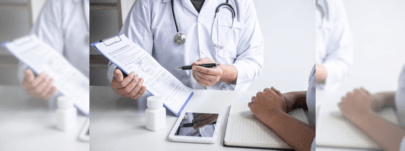
Is There an Over-Diagnosis of Sleep Apnea?
Sleep apnea is a disorder that increases the risk of developing further serious health conditions when left uncontrolled. Diagnosis is crucial, as sleep apnea can be managed through a treatment plan appropriate to the severity of the disorder.
Therefore, you may assume that reports that the diagnosis of sleep apnea has increased sharply in recent years is a positive. However, concerns have been raised about the potential for over-diagnosis of sleep apnea. Is this a legitimate concern?
The Rise in Sleep Apnea Diagnosis
Diagnosis rates for sleep apnea can vary across populations and population groups. However, diagnosed sleep apnea has increased by as much as 50% in the last 10 years in some populations. This has prompted a debate about whether there is now an over-diagnosis of sleep apnea.
One of the most likely driving forces behind this surge is an increased awareness of sleep apnea, not just in the general population, but also among healthcare providers. Sleep apnea can be difficult to diagnose, as some symptoms, such as excessive daytime fatigue, can be mistaken for another sleep disorder or health issue.
A polysomnography is often used to diagnose sleep apnea. This is an overnight study undertaken in a sleep clinic that measures and records various data as you sleep including the frequency of breathing episodes (apneas).
However, the increased accessibility of at-home sleep study kits has increased the accessibility and convenience of sleep apnea diagnosis. This could also be a reason for an increase in the diagnosis of sleep apnea.
Obesity is seen as a primary risk factor for sleep apnea. It is also an increasing issue generally in many developed nations. Increasing rates of obesity may also mean increased testing and diagnosis of sleep apnea given its known link to the disorder.
Is There an Over-Diagnosis of Sleep Apnea, and if so, is that a Problem?
A concern in the rise in diagnosis rates is the possibility that people with mild or borderline sleep apnea are receiving unnecessary diagnoses. Treatment options for sleep apnea can be expensive, and any misdiagnosis can bring unnecessary health and financial concerns to a patient.
Normal sleep patterns can see periods where your breathing drops and you briefly wake. This is feared as being interpreted as sleep apnea and patients over-treated. It is felt that over-diagnosis of sleep apnea could be forcing people to make such adaptations for treatments they don’t need. Many with these concerns think the diagnostic criteria for sleep apnea may need to be revisited.
However, in previous years, reports have suggested that up to 85% of sleep apnea cases go without being diagnosed. This suggests that any increase in diagnosis rates is a positive reaction rather than an over-diagnosis of sleep apnea.
Why Diagnosing Sleep Apnea is Important
Patients with severe obstructive sleep apnea can briefly wake for air more than 30 times every hour. The drop in oxygen levels caused by breathing pauses can result in increased heart rate and high blood pressure levels as the body works harder to pump oxygen. Stress hormones are released that can add to the pressure on the cardiovascular system.
Left uncontrolled, sleep apnea can increase the risk of health conditions including heart attack, stroke, and diabetes. Indeed, sleep apnea has the potential to shorten your lifespan without treatment.
The daytime fatigue resulting from sleep deprivation caused by sleep apnea puts you at increased risk of traffic and workplace accidents. The concentration issues and mood swings that are also symptoms of sleep apnea can have a significant impact on your personal and professional life.
Uncontrolled sleep apnea can significantly affect the quality of life, both physically and emotionally. This is why diagnosis is so important as the symptoms can be managed and reduced, if not eliminated.
The symptoms of obstructive sleep apnea, the most common form of the disorder, include:
- frequently awaking for air during sleep
- waking gasping for air
- loud snoring
- daytime fatigue
- mood swings
- poor levels of concentration
- dry mouth
- morning headaches
Often it is a partner who may notice the signs of sleep apnea first. They may realize you often wake during the night, sometimes wake gasping for air, or are snoring more heavily. When you wake for air, the period of wakefulness can be so brief that you do not recall it.
If you recognize the signs of sleep apnea, you should consult your healthcare provider at the earliest opportunity.
Could Sleep Apnea Still Be Under-Diagnosed?
Obstructive sleep apnea is a more common condition than many people realize. It is estimated that over 30 million Americans have the disorder, yet around 85% of cases still remain without a diagnosis. Worldwide it is estimated one billion people suffer from sleep apnea.
Treatments such as CPAP require a prescription and therefore, without an official diagnosis, millions of people could be missing out on treatment to help them manage their symptoms, improve their sleep, and reduce the risk of developing the health conditions linked to sleep apnea.
This suggests that under-diagnosis of sleep apnea is still an issue.
While there may be genuine concerns that the diagnostic process pulls in some borderline cases for treatment they don’t require, there is also a reasonable argument to be made that it is best to err on the side of over-diagnosis for sleep apnea rather than under-diagnosis, given the impact sleep apnea can have on the quality of life and the long-term health issues linked to the disorder.
In conclusion, evidence of over-diagnosis of sleep apnea seems uncertain. Indeed, it seems possible that sleep apnea continues to be underdiagnosed. As uncontrolled sleep apnea places you at an increased risk of developing serious health problems, any increase in diagnosis rates might still be viewed as a positive step in the right direction in improving general sleep quality and overall health.



